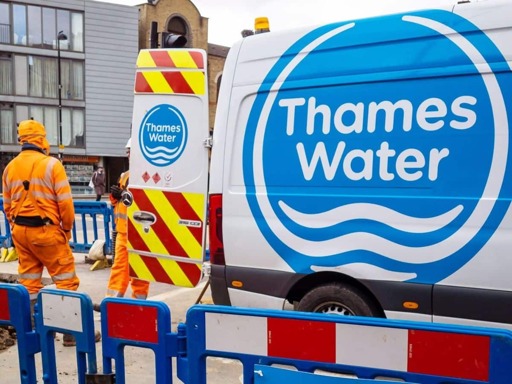Stricken water company Thames Water is over £20bn in debt. It’s currently being kept on life-support by a consortium of lenders collectively known as London Valley and Water (LVW). Overall, Thames Water owes LVW more than £13bn.
Currently, LVW are locked in talks with water regulator Ofwat to write off 25% of its debt and provide a £4bn cash boost. However, they’re also begging to be allowed to continue to pollute Britain’s waterways without consequence for years to come.
However, two other companies are now complaining that LVW’s proposed rescue deal is unfair. No, not because it lets Thames Water off the hook. Rather, Hong Kong’s CKI Holdings and the UK’s Castle Water believe that the rescue is preventing them from bidding for a chunk of Thames Water. CKI Holdings’ parent company, CK Hutchison, already has a slice of both Northumbrian Water and UK Power Networks.
Thames Water customers foot LVW’s bill
Analysis carried out by Barclays suggested that LVW’s ‘rescue plan’ could leave customers paying almost 20% more by 2030. It claims that bill-payers will bear part of the financial risk to Thames Water. However, Barclays also conceded that selling Thames Water to a China-based company could raise national security concerns.
Regarding Barclays’ analysis, a spokesperson for the bondholders told the BBC:
We reject these misleading statements and do not recognise the assumptions they are based on.
We have always said that customer bills will remain in line with those contemplated in the Final Determination (pricing plan laid out by Ofwat earlier this year) for the next five years.
Having been given multiple opportunities throughout a 12-month competitive equity process, CKI did not put forward a viable proposal to fix Thames Water’s complex problems.
For its part, Castle Water — which usually sells water to businesses and other private bodies — has stated that it’s prepared to trump LVW’s proposal by an extra £1bn. However, even Castle Water has admitted that it isn’t particularly close to putting in a formal proposal at this stage. A company spokesperson said:
Our approach is based on increased upfront investment that will overhaul the assets and infrastructure that is currently undermining Thames’ performance and deliver the sort of step change in service delivery that customers deserve.
It will also address head on the issue of pollution. When it comes to pollution, you simply cannot compromise.
Nationalise it
Given that LVW’s plan involves continuing to pollute for years to come, and the other two companies aren’t in a real position to bid, you’d be forgiven for asking for the alternative. If Thames Water does finally collapse, it would be taken into special administration under government supervision. Essentially, the water utility would be re-nationalised.
Professor Dieter Helm, an infrastructure expert and economist, has argued that special administration would be the best option for Thames Water and its customers in the long term. It could see an even larger debt write-off than the current 25% LVW proposal.
Unfortunately, our government seems hellbent on avoiding even temporary nationalisation. Public ownership, whilst potentially beneficial in the long-term, could rack up a bill of billions in the immediate future. With chancellor Rachel Reeves barely scraping together the funds for her autumn budget, such forward-thinking looks out of the question.
As such, with LVW looking to secure an agreement with Ofwat and the Treasury by Christmas, it seems that customers will inevitably be saddled with ever-increasing bills to pay for the sins of their failed and failing supplier.
Featured image via company’s website
From Canary via this RSS feed


